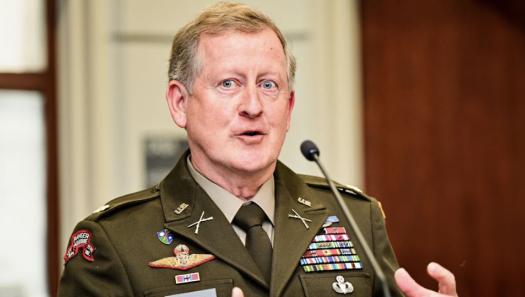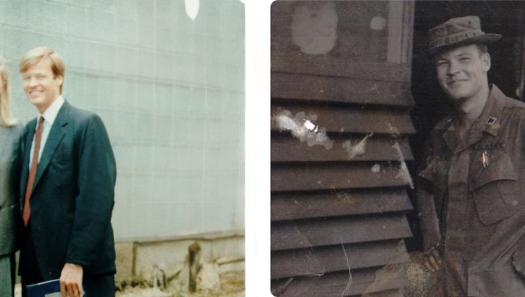Military & Veterans Life
Cover Story: Refugee, POW, Veteran: Solider Survives Test of Time to Get Medal of Honor after 55 Years
Roy Asfar
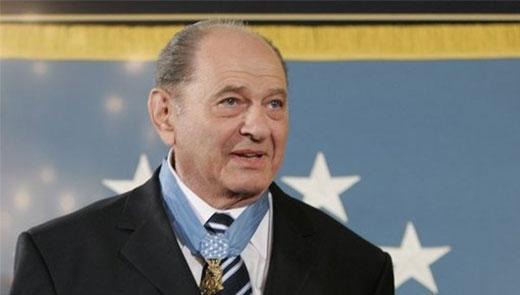
A concentration camp survivor who joined the U.S. Army out of gratitude, fought in Korea and spent 2 1/2 years in a Chinese prisoner of war camp was awarded a Medal of Honor last month, 55 years after acts that now qualify him for the MOH.
President Bush gave the nation’s highest military honor to Hungarian-born Tibor Rubin, 76, in the White House East Room. The medal recognizes him for overcoming dangers as an infantryman, trying to save fellow soldiers in battle and as a prisoner of war, even as he faced prejudice because he was Jewish and a foreigner.
"By repeatedly risking his own life to save others, Cpl. Rubin exemplified the highest ideals of military service and fulfilled a pledge to give something back to the country that had given him his freedom," Bush said.
The service was attended by a "Who’s Who" of military heroes & leadership: Four previous MOH members were joined by Vice President Dick Cheney, Secretary of Defense Donald Rumsfeld, Senator John Warner, the Chairman of the Armed Services Committee, Vice Chairman of the Joint Chiefs of Staff Admiral Edmund P. Giambastiani, Jr. and General Pete Schoomaker, Chief of Staff of the United States Army, among others.
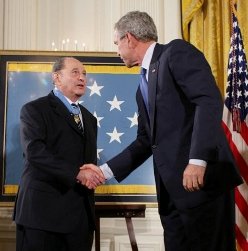 The Hungarian-born Rubin, of Garden Grove, Calif., stood at Bush’s side with his head slightly bowed and his hands clasped behind his back as the president extolled him, then fastened the gold medal around his neck.
The Hungarian-born Rubin, of Garden Grove, Calif., stood at Bush’s side with his head slightly bowed and his hands clasped behind his back as the president extolled him, then fastened the gold medal around his neck.
"It’s a wonderful, beautiful country. We are all very lucky," Rubin told reporters later.
When Rubin was just 13, he and his family were rounded up by the Nazis and taken to the Mauthausen concentration camp in Austria. His parents and sister died at the hands of the Nazis but Rubin survived for 14 months. He was liberated by American GIs and vowed to join the U.S. Army if he ever made it to America.
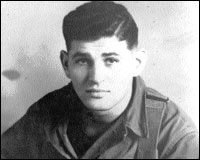 |
Right after he came to America and enlisted, off he went to fight in Korea. There, Rubin’s actions during battle and as a prisoner of war went beyond bravery to heroism, as Bush described them.
Rubin was taken prisoner by Chinese troops in the fall of 1950 at the tail-end of a three-day battle in Unsan. Assigned to defend a hill, Rubin single-handedly held off the enemy for 24 hours, inflicting casualties and allowing his own unit to withdraw safely. Later, when Corporal Rubin’s battalion found itself ambushed by thousands of Chinese troops, the Americans’ firepower soon dropped to one single machine gun, and three soldiers were already lost manning the position. But Rubin fought to defend the gun, until his own ammunition was gone. He was badly wounded, captured and sent to a POW camp.
Having survived "a heck of a basic training from the Germans," Rubin breathed life into his fellow POWs. He is credited with saving as many as 40 lives at Death Valley and Pyoktong by providing food and nursing Soldiers through such sicknesses as dysentery, pneumonia and hepatitis. During captivity, he risked his life to steal food for fellow prisoners, give them medical help and keep their morale up. He refused an offer from his captors to return to communist Hungary.
"I wouldn’t leave my American brothers when they needed me," Rubin said.
"Those who served with Ted speak of him as a soldier who gladly risked his own life for others," Bush said.
His acts of compassion came even though he suffered prejudice, according to an Associated Press account. The Army says Rubin’s fellow soldiers and commanding officers recommended him for the Medal of Honor three times before, but the paperwork was not submitted because a member of his chain of command was believed to have discriminated against him.
"Today, we remember the mother, father and sister that Corporal Rubin lost to an unspeakable evil. We admire the determination of a young man who sought to repay his American liberators by following in their footsteps, and we recall the selfless acts that gave his comrades strength and hope in their darkest hours," Bush added.
